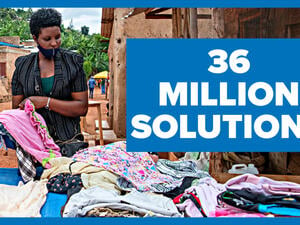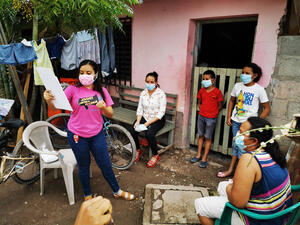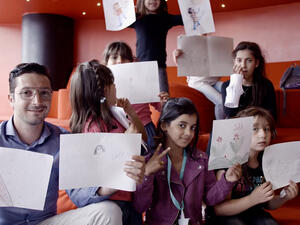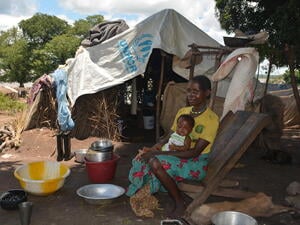UNHCR promotes innovation and self sufficiency at annual NGO meet
UNHCR promotes innovation and self sufficiency at annual NGO meet

UN Deputy High Commissioner for Refugees T. Alexander Aleinikoff at the opening of UNHCR's annual consultations with its NGO partners in Geneva today.
GENEVA, July 3 (UNHCR) - A top UNHCR official opened annual consultations with non-governmental organizations (NGO) on Tuesday by seeking their assistance in developing innovative ways to help refugees and in empowering more of the displaced through self-sufficiency.
Deputy High Commissioner for Refugees T. Alexander Aleinikoff, addressing more than 430 participants from 86 countries at the start of the three-day meeting in Geneva, said UNHCR was looking at how the agency and its partners could "become 21st Century organizations" and benefit from best practices around the world.
"Many of us work in ways we have worked for many years, where things that have worked in the past continue to work in the present. But, meanwhile, the world has moved on," he said, adding that UNHCR was looking at how it could benefit from improvements in areas such as mobile phone technology, solar power and lighting, fuel-efficient stoves, shelter, livelihoods and micro-credit.
"All of these are areas in which innovative practices would be welcome and where we can learn from organizations and changes going on around the world," Aleinikoff said, before revealing that the agency would soon launch an "innovation initiative" that would "attempt to pull these examples together" and feature innovative ideas developed in the field.
"So if you do have thoughts on different ways we should be doing our work, experiences you have done, examples you have, please let us know so that we can feature those ideas," he said.
The Deputy High Commissioner also sought the help of NGO partners in making more of the long-term displaced self-reliant, including livelihood projects and training that will help them take charge of their lives.
"I would like to urge together here a renewed focus on self-reliance activities in our camps, in our settlements, in our urban situations," he told the participants. "We could greatly use your help, your energy, your thoughts."
The theme of this year's meeting is "Partnership in Focus" and participants will be discussing issues of mutual concern during regional and thematic sessions. Topics to be discussed this year include statelessness, resettlement, climate change, information management, xenophobia and racism, urban refugees, justice for victims and survivors of sexual violence, the Arab Spring and much more.
Meanwhile, Daisy Dell, director of UNHCR's Division of External Relations, stressed how important non-governmental organizations were to the refugee agency, noting that it works with more than 750 of them around the world, of which slightly over 600 are national NGOs. And she noted the increasing dangers they face, paying tribute to Norwegian Refugee Council driver Abdi Ali who lost his life during an abduction of aid workers last week in Kenya's Dadaab refugee complex. The captives were later rescued.
Dell said there were challenges ahead. "We need to review our ways of engaging with each other over the years to come," she said, adding that to this end "the High Commissioner [António Guterres] has put inter-agency coordination and initiatives to enhance partnerships at the forefront of his agenda."
For the past two decades, the annual consultations have brought together NGOs and UNHCR managers to examine all aspects of their partnership on behalf of the world's uprooted people.
NGOs are vital partners for UNHCR, implementing programmes for refugees and internally displaced people in some of the world's most remote and difficult places.








